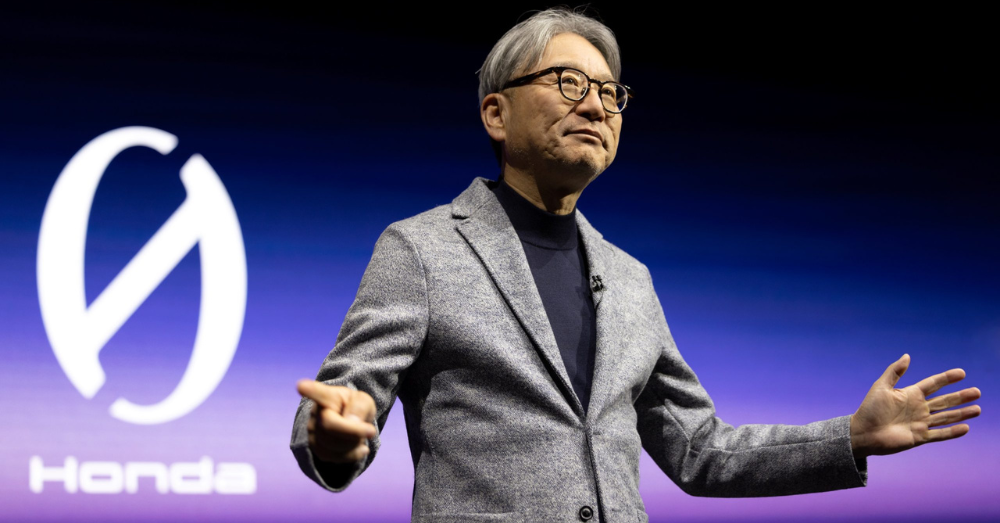For a while, it looked like Honda was all in on electric. Bold concept vehicles, billion-dollar investments, and a seven-EV lineup promised by 2030 all pointed to a future powered by battery. But now, it seems the brakes are being tapped hard.
According to a recent report out of Japan, Honda has quietly canceled its plans to launch a full-size, three-row electric SUV originally slated for 2027. The model, which was expected to compete with the likes of the Kia EV9, is no longer on the automaker’s short-term roadmap. Honda is reportedly scaling back EV development across the board, shaving a staggering $20 billion off its electric vehicle budget and redirecting those funds to hybrid technology instead.
Tax Credit Turbulence and Changing Consumer Habits
This pivot didn’t happen in a vacuum. The EV market in the U.S. has cooled off considerably, and policy changes are playing a major role. With the federal EV tax credit now gone thanks to the newly passed “Big Beautiful Bill,” vehicles that once looked like futureproof bargains suddenly feel overpriced and out of reach.
That shift in sentiment is especially stark when it comes to large electric SUVs. Without the $7,500 federal incentive, buyers are taking a second look at sticker prices, and many are walking away. A $70,000 all-electric family hauler doesn’t make much sense when hybrid alternatives cost far less and come without range anxiety. In many cases, shoppers are choosing used cars, including reliable hybrids or even efficient gas-powered models, over flashy new EVs.
What Happens to the Honda 0 Series?
Honda isn’t scrapping everything. The 0 Series and a midsize SUV are still expected to move forward, both featuring the sleek, futuristic design language previewed in earlier concept models.
Honda’s EV investment, originally pegged at nearly $69 billion, is being trimmed to just over $48 billion. The redirected funds will help the company’s hybrid development, which now appears to be the backbone of its electrification strategy, at least in the near term.
Just last year, Ford shelved its own three-row EV project, citing the same concerns around demand, cost, and return on investment. Other automakers have softened their all-EV targets or delayed key launches as market realities settle in.
Hybrids and Used Cars Still Make Sense
In many ways, Honda’s shift reflects where American buyers are right now. While there’s plenty of enthusiasm for cleaner transportation, there’s also a demand for value and practicality. Midsize hybrid crossovers offer both, with excellent mileage and none of the charging infrastructure headaches. For budget-conscious drivers, the appeal of used cars, especially well-maintained hybrid and plug-in models, is growing rapidly.
The Long Road Ahead
While this isn’t the EV rollout Honda originally envisioned, it’s not a retreat. The automaker is adjusting to a new U.S. market where political winds, consumer preferences, and infrastructure challenges all carry weight.
Even if Honda’s big electric SUV never reaches production, the company is still moving forward with a strong approach to electrification, including hybrids, plug-ins, and maybe even more used cars on the road as buyers continue to shop with caution and curiosity.
This post may contain affiliate links. Meaning a commission is given should you decide to make a purchase through these links, at no cost to you. All products shown are researched and tested to give an accurate review for you.
